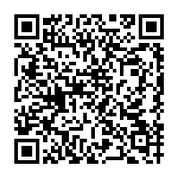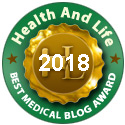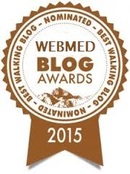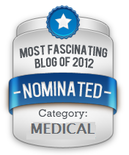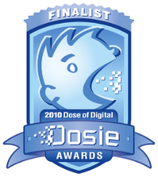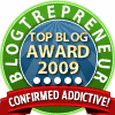Facebook misleads. Take the following event (borrowed from a Facebook friend). A bloke you knew in high school, whom you’ve not met or spoken to in real life since you left high school, has got married. He posts pictures of his wedding taken by a snazzy professional photographer. The pictures gather hundreds of likes and comments. Your friends shower your high school mate with congratulations. There are discussions about the bride’s dress, the tasty food, the fancy hotel, but absolutely no one knows that the reason they are really getting married is because the bride is pregnant with your mate’s baby. Facebook leads us to walk around with the completely wrong idea about our friends’ lives. So holiday pictures are over-liked. Stressful outbursts go unshared. A new job is immediately updated. Being fired is never made note of. Your friends might subscribe to a lot of “Causes”. In real life they do nothing about those causes.
We are not rational enough to be exposed to Facebook. Watching a video of your mother in a dance club is going to change your attitude towards your parents, regardless of your real relationship with them. If you think you can compensate with the strength of your own inner contemplation, you are wrong. Bankers and investors – who have powerful incentives to keep you hooked so that Facebook can make a profit – have shown that they cannot. The only solution: cut yourself off from using Facebook entirely.
Facebook is irrelevant. Out of the approximately 10,000 status updates, links or photos that you have accessed on Facebook in the last 12 months, name one that – because you consumed it – allowed you to make a better decision about a serious matter affecting your life, your career or your business. The point is: the consumption of the “feed” is irrelevant to you. But people find it very difficult to recognize what’s relevant. It’s much easier to recognize what’s new. The relevant versus the new is the fundamental battle of the current age. Facebook wants you to believe that using Facebook Home will make your life better. Many fall for that. We get anxious when we’re cut off from the flow of the news feed. In reality, Facebook consumption is a competitive disadvantage. The less time you spend on Facebook, the bigger the advantage you have.
Facebook has no real power. Notifications are bubbles popping on the surface of the real world. Will accumulating facts about your friends help you understand what is happening in their life? Sadly, no. The relationship is inverted. The important stories are not shared on Facebook: people are actually desperately alone. The more “factoids” you digest about your friend, the less alone you think you will feel. But if more information about your friends leads to happiness, we’d expect Facebook users with the most friends to be at the top of the pyramid. That’s not the case.
Facebook is toxic to your body. It constantly triggers the limbic system. New pictures on Facebook spur the release of cascades of glucocorticoid (cortisol). This deregulates your immune system and inhibits the release of growth hormones. In other words, your body finds itself in a state of chronic stress even though you are feeling good. High glucocorticoid levels cause impaired digestion, lack of growth (cell, hair, bone), nervousness and susceptibility to infections. The other potential side-effects include fear, aggression, tunnel-vision and desensitization.
Facebook increases cognitive errors. Facebook feeds the mother of all cognitive errors: confirmation bias. In the words of Warren Buffett: “What the human being is best at doing is interpreting all new information so that their prior conclusions remain intact.” Links your similar minded friends share exacerbates this flaw. We become prone to overconfidence, take stupid risks and misjudge opportunities. It also exacerbates another cognitive error: the story bias. Our brains crave stories that “make sense” – even if they don’t correspond to reality. Any of your friend who writes, “Terrorists should be bombed” or “Cut the rapists penises” is an idiot. I am fed up with this cheap way of “solving” the world’s problems.
Facebook inhibits thinking. Thinking requires concentration. Concentration requires uninterrupted time. Facebook notifications are specifically engineered to interrupt you. They are like viruses that steal attention for their own purposes. Cute cat pictures makes us shallow thinkers. But it’s worse than that. Facebook severely affects memory. There are two types of memory. Long-range memory’s capacity is nearly infinite, but working memory is limited to a certain amount of slippery data. The path from short-term to long-term memory is a choke-point in the brain, but anything you want to understand must pass through it. If this passageway is disrupted, nothing gets through. Because Facebook disrupts concentration, it weakens comprehension. Friends who share too much have an even worse impact. Why? Because whenever a link appears, your brain has to at least make the choice not to click, which in itself is distracting. Facebook is an intentional interruption system.
Facebook works like a drug. As stories develop, we want to know how they continue. With hundreds of your friends’ story lines in our heads, this craving is increasingly compelling and hard to ignore. Scientists used to think that the dense connections formed among the 100 billion neurons inside our skulls were largely fixed by the time we reached adulthood. Today we know that this is not the case. Nerve cells routinely break old connections and form new ones. The more time we spend on Facebook, the more we exercise the neural circuits devoted to skimming and multitasking while ignoring those used for reading deeply and thinking with profound focus. Most Facebook users – even if they used to be avid book readers – have lost the ability to absorb lengthy articles or books. After four, five pages they get tired, their concentration vanishes, they become restless. It’s not because they got older or their schedules became more onerous. It’s because the physical structure of their brains has changed.
Facebook wastes time. If you check Facebook for 15 minutes each morning, then check it again for 15 minutes during lunch and 15 minutes before you go to bed, then add five minutes here and there when you’re at work, then count distraction and refocusing time, you will lose at least half a day every week. Good Instagram pictures are no longer a scarce commodity. But attention is. You are not that irresponsible with your money, reputation or health. Why give away your mind?
Facebook makes us passive. Facebook status updates are overwhelmingly about things you cannot influence. The daily repetition of notifications about things we can’t act upon makes us passive. It grinds us down until we adopt a worldview that is pessimistic, desensitized, sarcastic and fatalistic. The scientific term is “learned helplessness”. It’s a bit of a stretch, but I would not be surprised if Facebook use, at least partially contributes to the widespread disease of depression.
Facebook kills creativity. I don’t know a single truly creative mind who is a Facebook addict – not a writer, not a composer, mathematician, physician, scientist, musician, designer, architect or painter. On the other hand, I know a bunch of viciously uncreative minds who consume Facebook like drugs.
Society needs social cohesion — but in a different way. Meeting friends in pub is almost always fun. We need people to spend time together in real life rather than in front of screens. Only then can we have meaningful relationships.
Deleting your Facebook profile is not easy, but it’s worth it.

 RSS Feed
RSS Feed
